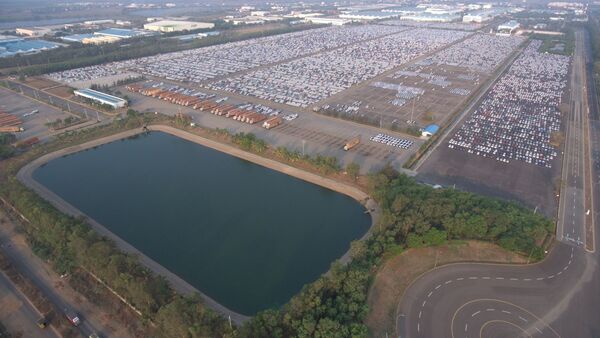Hyundai India aims 100% renewable energy
[ad_1]Hyundai plans to invest ₹32,000 crore for expansion of car and SUV platforms including electric vehicle range and charging infrastructure development
…

Hyundai Motor India aims to reach the RE100 benchmark by 2025. To achieve this target, the South Korean auto giant aims to use 100 per cent renewable energy for its operations in India. The carmaker has announced in an official release that it has been strategically purchasing green electricity from the Indian Energy Exchange to increase its RE portfolio of 64 per cent. The OEM also claimed that it has conserved energy equivalent to about 19,200 tonnes of oil through key energy management projects till now in India.
Hyundai also claimed that it has achieved 80 per cent water neutrality by utilising recycled RO water and rainwater from harvesting ponds with a capacity of 350,000 tonnes. Besides that, the auto OEM claimed to have reduced hazardous waste by 19.4 per cent and non-hazardous waste by 14.3 per cent over the last five years.
Also Read : Hyundai set to bid farewell to petrol-powered N models. Check details
The development and launch of electric vehicles and the setting up of EV charging infrastructure are also a key part of the brand’s strategy to reach carbon neutrality. For this, the OEM has announced to invest more than ₹32,000 crores in the next 10 years. This investment will be made for the expansion of car and SUV platforms including electric vehicle range and charging infrastructure development.
Speaking on Hyundai’s aim to reach the RE100 benchmark, Gopala Krishnan CS, Chief Manufacturing Officer at HMIL said that the automaker’s operations are driven by a strong sense of responsibility towards the environment and communities. “Our operations are driven by a strong sense of responsibility towards the environment and our communities. We view this proactive role as an opportunity to contribute to long-term sustainable development goals. Our sustainability initiatives are focused towards carbon neutrality and energy transition, circularity, clean tech products and services, operational eco-efficiency, and natural capital conservation. Our ‘Integrated Solutions to Climate Change’ initiative aims for carbon neutrality by 2045, with a sustainable operating system for future generations,” he added.
First Published Date: 28 Feb 2024, 16:49 PM IST
Source link
